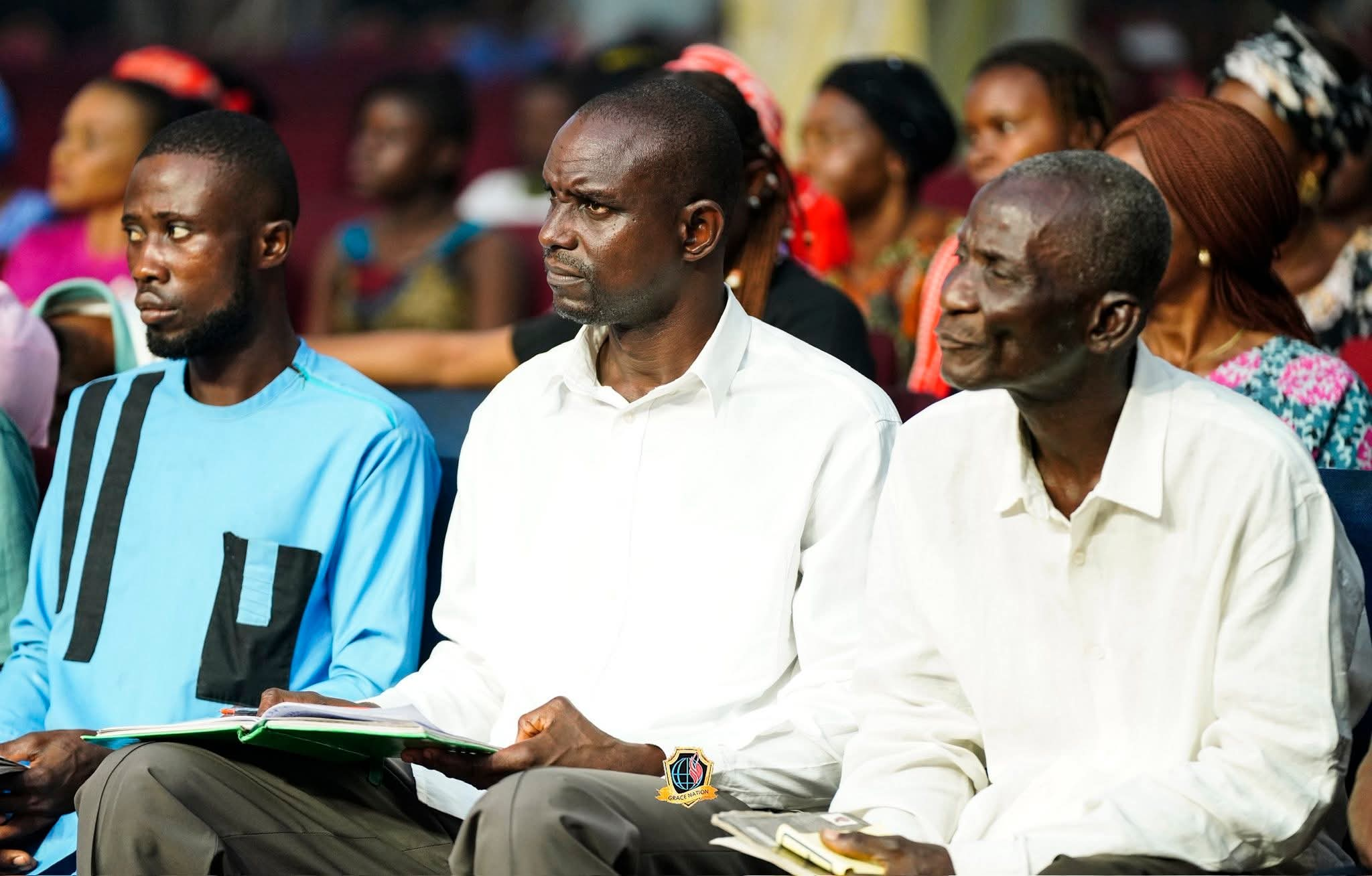celebrity radar - gossips
Sen. Chris Anyanwu expresses her disappointment in Prof. Wole Soyinka in an open letter “my heart sank because this time, my dear Baba, my dear icon, you are wrong.”

Sen. Chris Anyanwu, who moved the motion on the recently passed ‘Sexual Offences Bill’ has responded to Wole Soyinka’s open letter which was published over the weekend where he blasted a bill passed by the senate legalizing sex with underage girls. See her response below…
I have read your open letter published on a number of on-line papers. No one who read that letter could miss the fury embedded in your words. I know where that fury comes from: moral fiber, good conscience, and love of people. I want to assure you that it was the very same sentiments that drove me to come up with The Sexual Offences Bill and the same sentiments that led Senators and members to pass it.
As always, your aim was to speak as the voice of reason in our increasingly confused society. I know you meant well. I know you acted out of your deep compassion for Nigerians and fatherly love for the children. But as I read your open letter, my heart sank because this time, my dear Baba, my dear icon, you are wrong.
You have been misled by the misinformation circulated by someone who could not read or comprehend a legal draft; someone who did not have the patience to read through a proposal, see what was recommended and what was finally accepted. You were misled by someone who deliberately distorted the content of one of the most profound bills ever passed by the Nigerian legislature, scandalized the proponent and the institution for reasons that you and I may not know.
No where in the SEXUAL OFFENCES BILL that I proposed; no where in the bill passed by Senate was it stated that you can defile an 11 years old. Nowhere in the bill passed by the Senate was the age “11 years” mentioned. Here is what was passed in relation to your area of pre-occupation which is defilement clause 6 (2):
“A person who commits an offence of defilement shall upon conviction be sentenced to imprisonment for life”.
You claimed that the bill re-defined “female adulthood as marital status”. Where in the bill proposed by me and where in the bill passed by Senate did you see adulthood linked to marital status? The extreme distortion of the spirit, intent and even content of this bill leads me to think that you may be talking about an all-together different piece of legislation. For emphasis, let me state that the bill makes no such linkages as you erroneously stated. I think it may be fear of Sen Yerima that is at play here. For your information, Senator Yerima and all other Senators who participated in the debate on the two occasions the bill came up on the floor supported it as a vehicle for instituting a stringent law barring all ranges of sexual offences in Nigeria. They did this because they also have children, wives, daughters, even mothers and cannot afford to leave them in the current state where abuses are rewarded with a slap on the wrist of the
perpetrators because our laws are outdated, without strong in-built deterrence and the mechanisms for monitoring and control are absent.
This is just another case of people demonizing what is clearly in the public good because of deep-seated negative pre-dispositions towards individuals in an institution. By your strong advocacy against the bill, you have unwittingly stamped your feet in favor of maintaining the status quo. Where we are now.. the status quo.. is a world in which a six year old child is raped to death and then set ablaze. Where we are now is a place where a father rapes his 3 year old boys repeatedly and the mother weeps at night and cannot speak out due to shame and fear of her life. Where we are now is a place where young Cynthia in her struggles for self employment ran into a gang who drugged her, raped and murdered her. Where we are now is a place where foreigners come for tourism and turn children to their objects of tourism.
With all due respect Sir, I want to express my deep disappointment with your hastiness in flowing with the mob on this matter. I blame your press officers. I think they should have advised caution. You have known me since the 1990’s. There is no way you could have sent feelers and I would not jump into the next flight to answer you. In fact, a mere telephone call could have dispensed with the matter. If you had even asked someone to get you a copy of the Votes and Proceedings of Senate for that day which published the exact words in the legislation passed, you would have spared yourself the time and emotions spent over what is clear mischief circulated through the web. The people who started it all are hate-mongers. They merely took advantage of the negative public feelings they have built up against the legislature. You have no business with such people Sir.
I am sure in the most inner recesses of your mind you know I cannot in anyway be associated with any anti-people law. Nothing in my personal history, professional antecedents or even the hard work I did to push through pro-people legislations in Senate, could lead anyone to think of me as capable of working against children, the very people I fought for over the course of my 8 years in Senate. The Sexual Offences bill is only one of many I did. I also proposed the Occupational Safety and Health bill protecting workers in virtually all sectors of the economy from hazards at work. The only group excluded are those in the oil and gas sectors who have been extensively provided for in the PIB.
There was no “accident” as you call it involved in this legislation. Neither was there an error in judgment. The bill has been fabricated to provide a strong deterrence against abuses. When implemented, It will mitigate the private sufferings of parents; reduce their fear of what happens in their absence to their children at school, in the play grounds, in the neighborhoods, even in religious spaces.
Nigeria today is not a safe place for children; not a safe place for girls; not a safe place for small boys; and it is not a safe place either for old women. This legislation is proposes condign punishments for abhorrent crimes such as we are seeing in our country today. It even covers crimes yet to arrive our shores. Under this bill, pedophiles will be put away for life not made rock stars as we do today. This bill will bring sanity to our society. It will make Nigeria a better place for all.
I suspect that some of those fighting against the bill are fixating on the short title. Its long title shows what it is: a sexual offences prevention bill; a tough deterrence to crime. I want you to take time and read the final copy of the bill. You will be proud. You will realize that good things can come from Nigeria and Nigerians. It is not only legislations initiated by outsiders and handed to us locals to push for their passage that should be deemed as good for us. By passing that bill, National Assembly has kept faith with the people of Nigeria. It has provided the cover of protection under which Nigerian children can live normal lives of fulfillment without fear. By your robust advocacy against the bill preventing sexual abuses of children, you foreclose the future of children in this society. But if I read you correctly, I have no doubt that you will reverse yourself on this once you have the correct information. This is why I have written you
this letter.
You have made your first “imposition” on Mr. President based on your understanding of the false information circulated by the very offenders you despise. I plead with you as a man who has been found to be a great man of honor and bestowed with the highest literary honor in the world to reconsider your position.
Let me on behalf of the innumerable victims of abuse in Nigeria; let me invoke the spirit of Cynthia who fell victim in Lagos; and let me plead on behalf of the many wives and husbands deliberately infected with HIV by their partners whose suffering impelled this bill, that you reverse your instruction to Mr. President. The President of the Federal Republic looks to old sages like you for positive direction. That was what you intended to give him. But now that you know the truth, for the sake of your long established reputation and known love for Nigeria, turn it around and urge Mr. President to sign this bill that will protect our people, restore sanity to society and make Nigeria a better place for all.
I remain your loyal admirer and sister, Sen Chris Anyanwu.
celebrity radar - gossips
E‑Money’s Grand Gesture: A Closer Look at the SUV Gift to Chinedu “Aki” Ikedieze

E‑Money’s Grand Gesture: A Closer Look at the SUV Gift to Chinedu “Aki” Ikedieze
By George Omagbemi Sylvester | Published by SaharaWeeklyNG
“Public Generosity, Celebrity Loyalty and the Symbolism of Wealth in Nigeria’s Entertainment Elite.”
On Tuesday, February 17, 2026, Nigerian billionaire and entrepreneur Emeka Okonkwo, widely known as E‑Money, once again captured national attention with a lavish and highly publicised act of generosity, gifting a brand‑new 2024/2025 Ford SUV to veteran Nollywood actor Chinedu Ikedieze, affectionately called Aki, during his high‑profile birthday celebration.
The event, held in Lagos amidst a constellation of entertainers, business figures and socialites, was itself part of an annual tradition in which E‑Money marks his birthday (on February 18) with large‑scale giveaways and spectacular shows of material philanthropy. This year, he announced the gift of over 30 cars to friends, staff and family, a gesture that quickly went viral as videos and images circulated across social media platforms.
In the case of Ikedieze, E‑Money’s gift appeared to be deeply personal. During the festivities, E‑Money stood beside his elder brother, Grammy‑nominated musician KCee and recounted how Ikedieze stood by him at his 2007 wedding. The billionaire explained that the SUV was a “token of appreciation” for the enduring support the actor had shown over the years which is a narrative that blends friendship with public celebration.
Ikedieze, a Nollywood staple with a career spanning more than two decades and over 150 film credits, including the iconic Aki na Ukwa franchise, visibly reacted with humble surprise as he received the vehicle, bowing his head in respect and gratitude. The actor later shared the moment on his Instagram account with a caption celebrating the gift, further fuelling online engagement around the event.
Beyond the spectacle, this incident underscores evolving dynamics in Nigerian celebrity culture and the intersection of wealth, influence and reciprocity. Sociologist Dr. Chinedum Uche of the University of Lagos, speaking on the broader implications of such high‑profile gifts, notes: “Philanthropy that is highly publicised can reinforce social bonds, but it also reflects a culture where generosity is intertwined with reputation economy; where giving becomes as much a social signal as it is an act of kindness.” The quote highlights how public acts of wealth transfer among elites serve layered social functions that extend beyond pure altruism.
Critics of such displays argue that ostentatious giveaways, particularly in a country with stark economic disparities, risk amplifying social envy and exacerbating perceptions of inequality. Economist Dr. Ifunanya Nwosu from the Lagos Business School observes: “In societies marked by economic stratification, celebrity largesse may inspire admiration, but it can also inadvertently highlight structural inequities; prompting questions about systemic investment in public welfare versus individual generosity.”
Still, supporters maintain that E‑Money’s annual tradition (which has in past years included cash gifts to his brother KCee, comedians and even domestic staff) reflects genuine gratitude and a commitment to uplifting his immediate circle, albeit within the private sphere.
For Ikedieze, the SUV stands both as a heartfelt gesture from a longtime friend and a public affirmation of their enduring relationship. As the video of the moment continues to circulate, the broader narrative has ignited discussions about the role of private wealth in public life, celebrity culture and how acts of giving are interpreted in contemporary Nigerian society.
In a landscape where influence and generosity often play out in equal measure on public stages, E‑Money’s gift to Aki is more than a headline, it is a flashpoint in ongoing debates about wealth, friendship and visibility in Nigeria’s entertainment and entrepreneurial ecosystem.
celebrity radar - gossips
Spiritual Reality: Wicked People Are Possessed by Wicked Spirits — Dr. Christian Okafor

Spiritual Reality: Wicked People Are
Possessed by Wicked Spirits — Dr. Christian Okafor
…..“You don’t need to offend them before they attack you.”
…..“Your only true help comes from God.”
Demons are strategic and calculating. They detect threats quickly and position themselves to resist any power that may expose or overpower them.
According to the Generational Prophet and Senior Pastor of Grace Nation Global, Christian Okafor, spiritual intelligence operates both in light and in darkness—and believers must understand this reality.
Dr. Okafor delivered this message on Thursday, February 19, 2026, during the midweek Prophetic, Healing, Deliverance and Solutions Service (PHDS) held at the international headquarters of Grace Nation Worldwide in Ojodu Berger, Lagos, Nigeria.
The Operations of Demons
Teaching on the subject “Spiritual Reality” with the subtitle “Operations of Demons,” the Man of God explained that when demons possess individuals, their behavior changes. Such people may attack, bully, or resist those sent by God to help them, unknowingly rejecting divine assistance and prolonging their struggles.
“You don’t need to offend a demon before it attacks you,” he said. “What you carry is enough to provoke opposition. The greater your potential, the greater the battle.”
Dr. Okafor noted that many believers misinterpret battles as signs that God has abandoned them. However, he explained that some battles are permitted for growth, training, and divine glorification.
According to him, God may allow certain confrontations so that believers understand spiritual warfare and emerge stronger.
“Some battles are necessary,” he emphasized. “They push you into your turning point.”
He further stated that God does not respond to lies, blackmail, or bullying. He responds to His Word. Therefore, opposition is not proof of God’s absence, but often evidence of destiny at work.
The Weapon Against Demonic Attacks
Addressing solutions, Dr. Okafor described prayer as the strongest weapon against satanic operations.
“Prayer is the license that invites God into your battles,” he declared. “God does not intrude—He responds to invitation.”
According to the Apostle of Altars, understanding the principles and discipline of prayer enables believers to receive divine strategies for overcoming demonic resistance. Without prayer, he warned, spiritual help cannot be activated.
“You cannot receive help without God,” he concluded. “And you cannot engage God without prayer.”
Manifestations at the Service
The midweek gathering was marked by a strong move of the Spirit, with testimonies of deliverance, miracles, restoration, and solutions to various challenges presented before God. Several individuals reportedly committed their lives to Christ during the service.
celebrity radar - gossips
Kingdom Advancement: God Does Not Confirm Lies or Gossip — He Confirms His Word .” — Dr. Chris Okafor

Kingdom Advancement: God Does Not Confirm Lies or Gossip—He Confirms His Word
“When Doing Business with God,
People’s Opinions Do Not Count.”
— Dr. Christian Okafor
The greatest investment any Christian can make is partnering with God. According to the Generational Prophet of God and Senior Pastor of Grace Nation Global, Christopher Okafor, when a believer commits to serving and advancing God’s kingdom, no barrier, lie, gossip, or blackmail can prevail against them.
This message was delivered during the Prophetic Financial Sunday Service held on February 15, 2026, at the international headquarters of Grace Nation Worldwide in Ojodu Berger, Lagos, Nigeria.
Doing Business with God
Teaching on the theme “Kingdom Advancement” with the subtitle “Doing Business with God,” Dr. Okafor emphasized that when a believer enters into covenant partnership with God, divine backing becomes inevitable.
“God is still in the business of covenant,” he declared. “When you make a covenant with Him, He honors the terms. When you win souls into the kingdom and remain committed to His work, He rewards you with what you could never achieve by your own strength.”
The Man of God stressed that God does not confirm lies, gossip, or negative narratives—He confirms His Word. Therefore, anyone genuinely committed to kingdom business should not be distracted by public opinion.
“No matter the blackmail or falsehood circulating around you, if you are focused on God’s assignment, those attacks will only strengthen you,” he stated.
He further noted that a believer’s understanding of God’s covenant determines their experience. “Your mentality about God’s covenant becomes your reality. When you truly know the God you serve, no devil can move you.”
Biblical Examples of Kingdom Partnership
Dr. Okafor cited several biblical figures who prospered through their partnership with God:
Abel
Abel served God with sincerity and offered his very best. His sacrifice pleased God, demonstrating that when a master is honored, he responds with favor.
David
David’s heart was fully devoted to God, and in return, God’s presence and favor rested upon him throughout his life.
Hannah
Hannah made a covenant with God, promising that if He blessed her with a child, she would dedicate him to His service. After fulfilling her vow, God rewarded her abundantly, blessing her with additional children.
Peter
Peter, a professional fisherman, surrendered his boat at Jesus’ request for kingdom work. Through that act of partnership and obedience, he experienced supernatural provision and divine elevation.
Conclusion
In closing, Dr. Okafor emphasized that one’s approach to God’s covenant determines the level of success and prosperity experienced. Commitment to kingdom advancement secures divine confirmation and supernatural results.
The Prophetic Financial Sunday Service was marked by prophetic declarations, deliverance, healings, miracles, restoration, and solutions to diverse cases presented before Elohim.
-

 celebrity radar - gossips6 months ago
celebrity radar - gossips6 months agoWhy Babangida’s Hilltop Home Became Nigeria’s Political “Mecca”
-

 society6 months ago
society6 months agoPower is a Loan, Not a Possession: The Sacred Duty of Planting People
-

 society5 months ago
society5 months agoReligion: Africa’s Oldest Weapon of Enslavement and the Forgotten Truth
-

 news6 months ago
news6 months agoTHE APPOINTMENT OF WASIU AYINDE BY THE FEDERAL GOVERNMENT AS AN AMBASSADOR SOUNDS EMBARRASSING








You must be logged in to post a comment Login